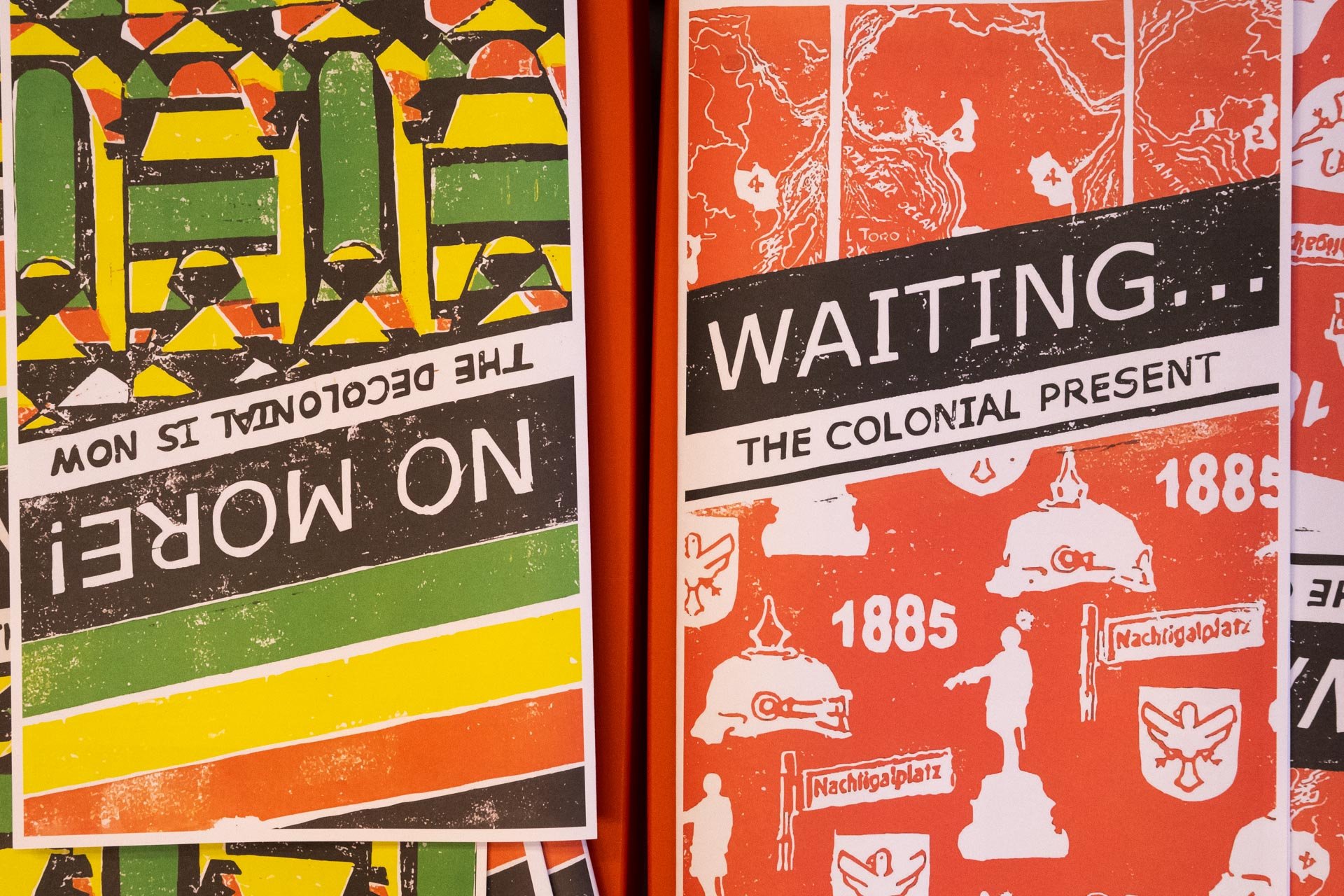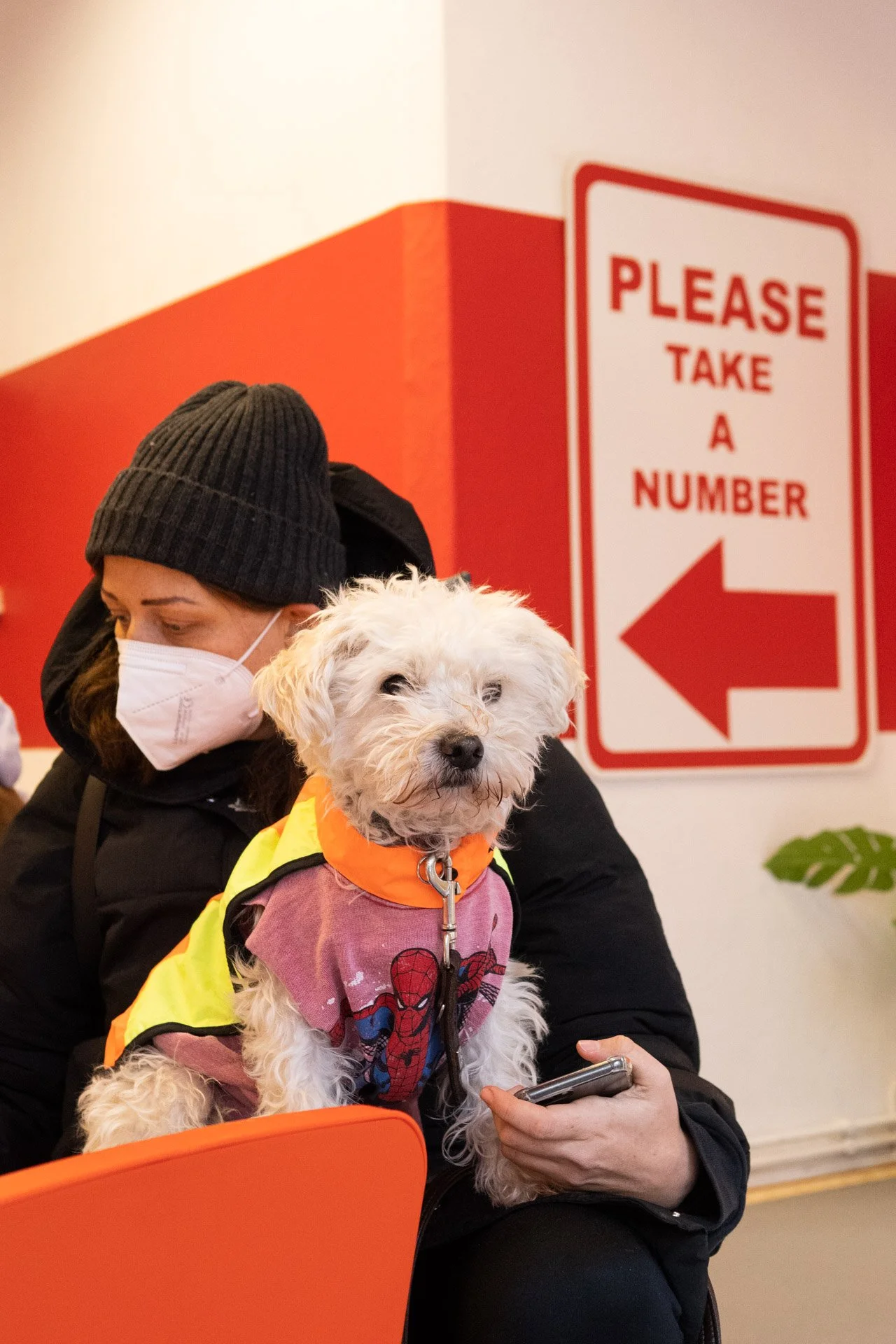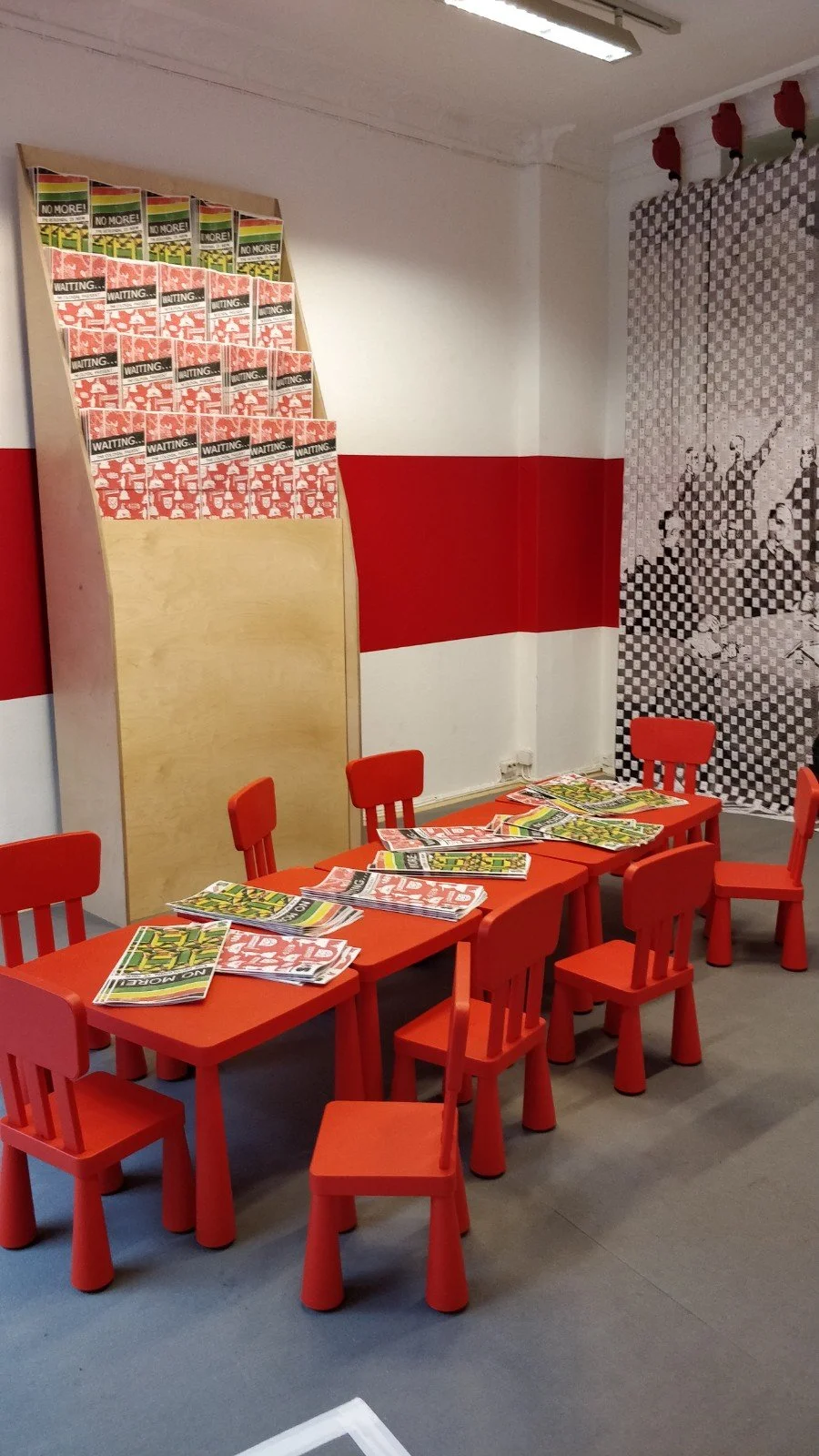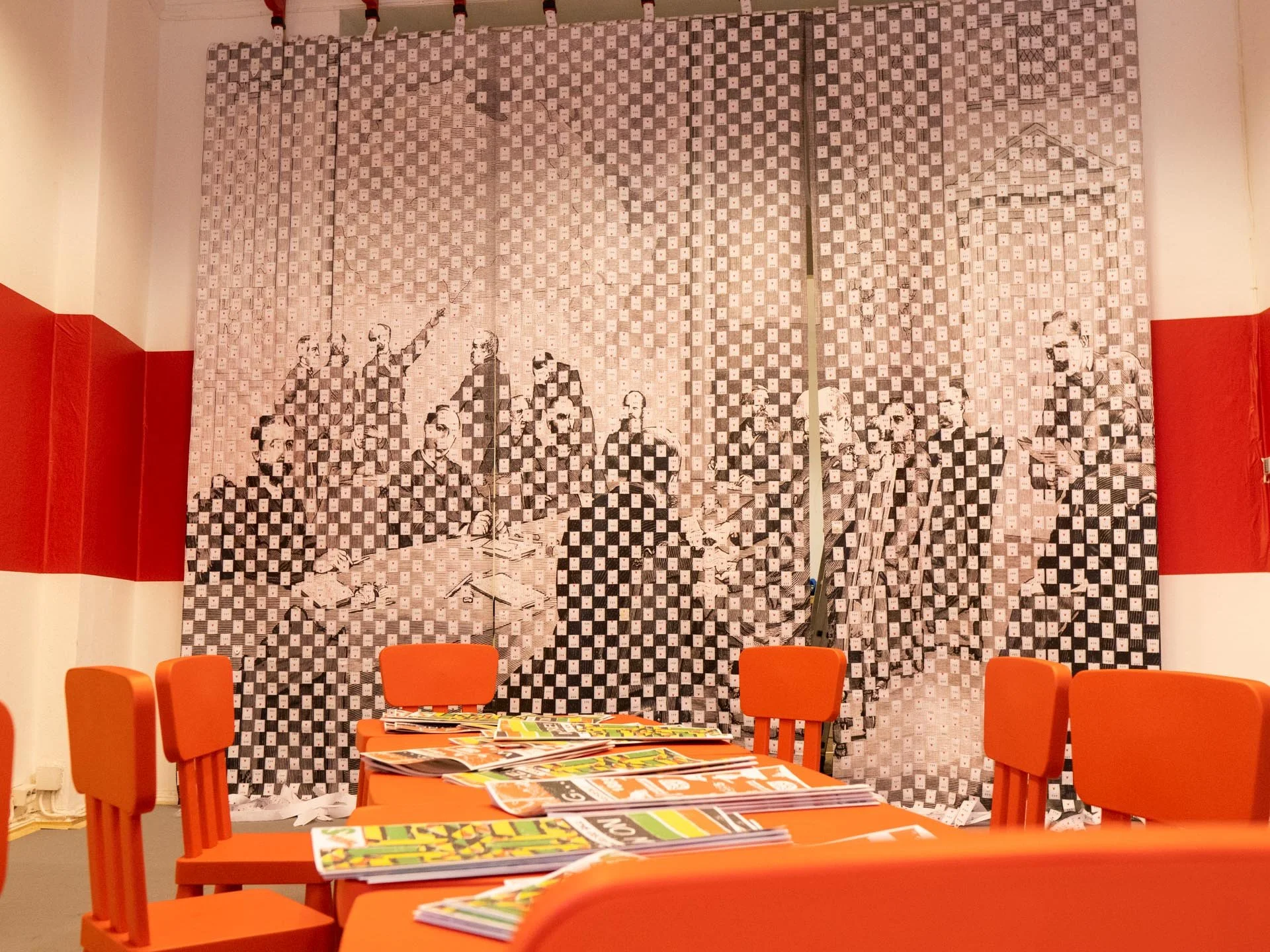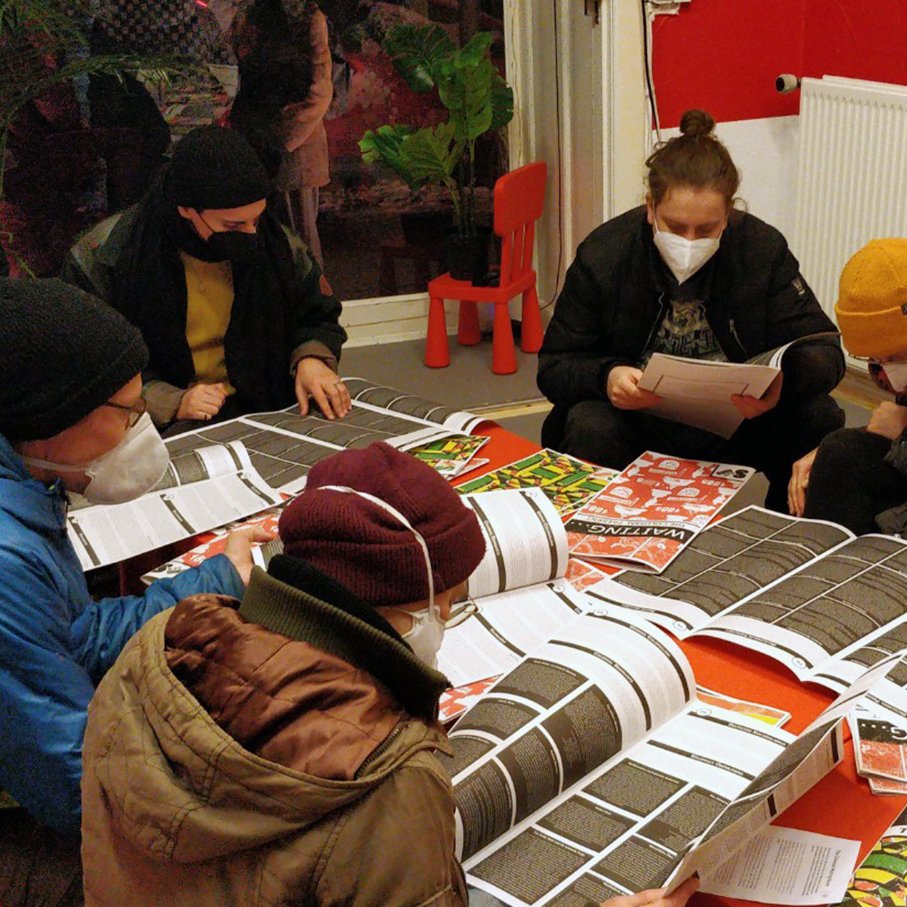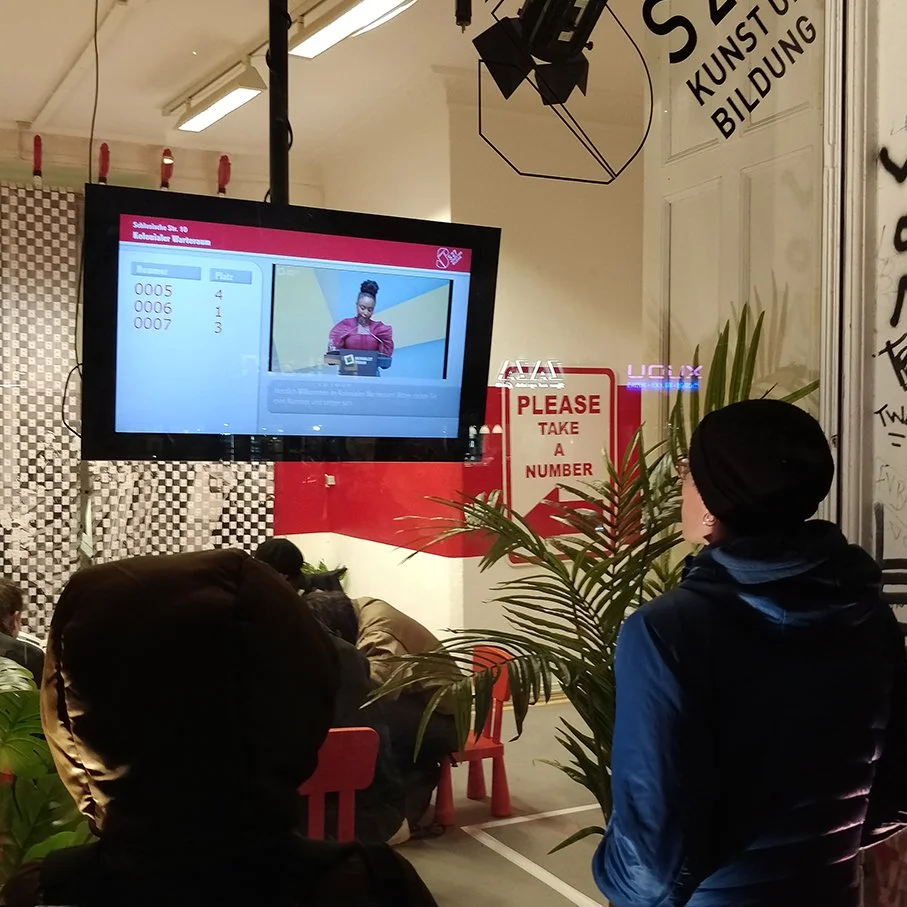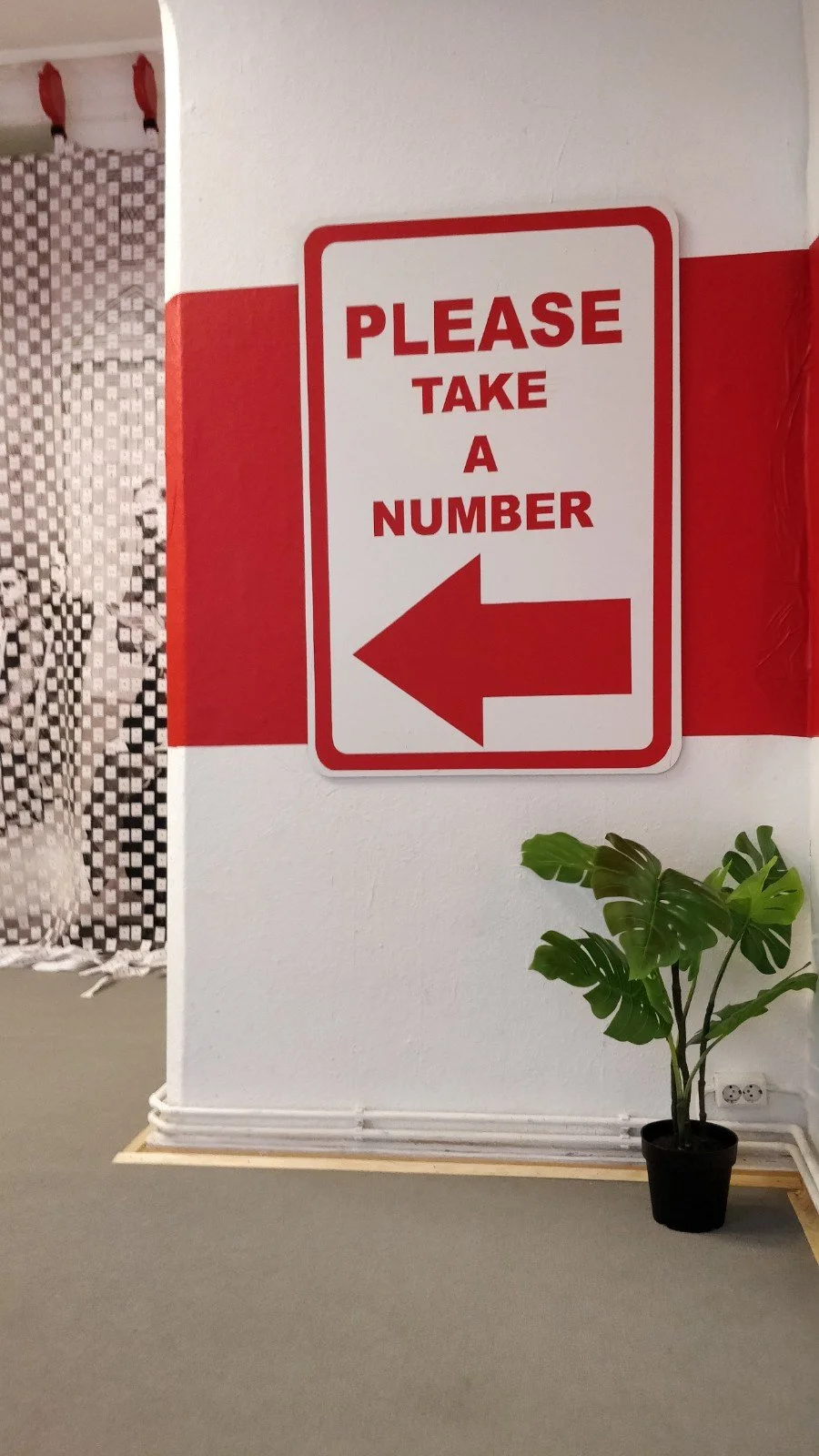The Colonial Waiting Room (2021)
The Waiting Room as a Colonial Space
When visiting the bustling rooms of the state office, it is often within the muted confines of the waiting room that we find bureaucracy at its most active. The moments spent here are not just another part of the Queue. Instead, the waiting room becomes a site of transition, a liminal space between there and here, between being and belonging, between past and future. This room is a space of possibility and also of subjugation. We take our numbers and find a seat. We glance over framed pictures and information boards and flip through official pamphlets. As we check our documents and watch the screen, anxiously waiting to be hailed, we might dream of past and future homes and our distance from both.
Can we also consider the waiting room, particularly on our frequent visits to the Ausländerbehörde, as a colonial space? Many visitors to these official offices come from countries that might themselves be considered as stuck in the “waiting room of history;” perpetually developing nations that reveal post-colonial progress as frozen time. Unfortunately, their individual migration journeys often echo this broader truth, each revealing a bureaucracy-dictated failure to transition or integrate. The stories of those who wait become part of larger narratives of the social, cultural and economic barriers created by Western colonial exploits. They reveal the systemic, material and ideological remnants of the European imperial era that exist all around us, memorialized in both brick and mortar and collective memory.
In collaboration with S27 - Kunst und Bildung. Funded by the Berlin Senatsverwaltung für Bildung, Jugend und Familie, Stiftung Deutsche Jugendmarke e.V. and Der Paritätische Wohlfahrtsverband Berlin e.V..

